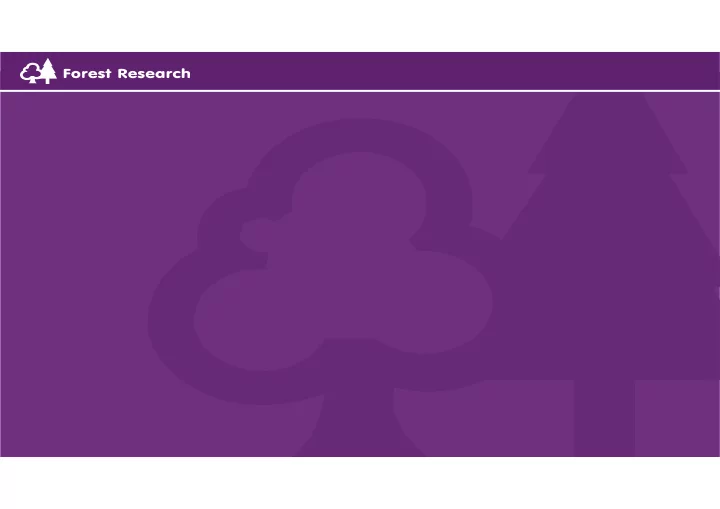

What is LiDAR? 15 07/12/2018
16 16 07/12/2018
17 17 07/12/2018
First return data from the LiDAR (from the canopy) 18 07/12/2018
LiDAR data (25cm) following initial processing (vegetation removal) Historic England (2018) Using Airborne Lidar in Archaeological Survey. https://historicengland.org.uk/images‐ books/publications/using‐airborne‐lidar‐in‐ archaeological‐survey/ 19 07/12/2018
20 07/12/2018
21 07/12/2018
22 22 07/12/2018
23 23 07/12/2018
Creation of slope and aspect im ages 24 24 24 07/12/2018
25 07/12/2018
26 07/12/2018
27
Processing 28 07/12/2018
29 07/12/2018
There are m any benefits……. • Quality 3D models, ability to see the forest floor • Potential tree / species mapping • Heritage mapping and condition monitoring • Forest access and management planning • Viewpoint and recreation planning • Vegetation height and change detection • Habitat / corridor mapping • Drainage and water management • Good engagement / education tool – 3D printing, virtual tours, maps 30 07/12/2018
And as m any caveats……. • Need to understand what the vegetation cover is and how it interacts with the laser • Lidar WILL NOT work through all types of woodland vegetation • What resolution survey is appropriate? • What time of year? • What survey equipment and specification? • How should the data be processed? • Ensure the survey / data are fit for purpose • What visualisation methods and optimisation are best? • Beware of false features and artefacts of data processing during data interpretation peter.crow@forestry.gsi.gov.uk 31 07/12/2018
Recommend
More recommend